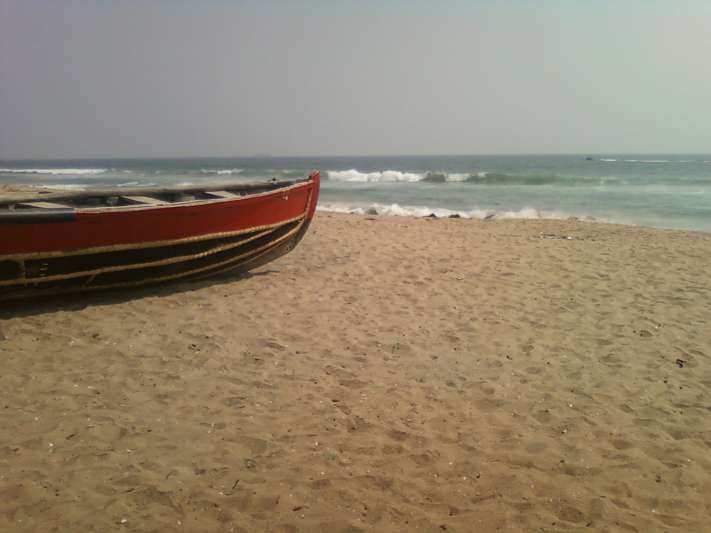The increasing global warming and melting ice caps, would ultimately lead to the increase in water levels and beach erosion. With Vizag being a coastal city, this is truly alarming. The city of destiny, which is famous for its beaches, is slowly loosing them. To prevent this, a workshop on ‘Recent Advances and Future Studies on the Coastal Processes and Beach Erosion’ was conducted with special emphasis on Andhra Coast was organized in the city with a view to learn the recent advances of research on the coastal processes and beach erosion with special emphasis on the Andhra Pradesh coast.
The variability of coastal currents at an offshore station off Visakhapatnam and their impact on the nearshore currents at the beaches, particularly the Rama Krishna beach impacting the waterfront changes at the beaches, leading to movement of sand and hence beach erosion is highlighted. This appears to be the major factor besides the regular tides and wind waves. However, the requirement of long-term time series of nearshore currents is pointed out for further examining beach erosion issue of the Visakhapatnam beaches.
The increase of air pollutants over the Vizag City due to the industrial activities are further enhanced due to the orography – bowl shape of the mountains. This leads to higher residence time of the pollutants over the Vizag City. This increased concentration of air pollutants cause the acidification of coastal waters of Visakhapatnam impacting biodiversity of these coastal waters. This in turn may have an impact on the food web dynamics.
”Our coast is experiencing seasonal changes and as long as the eroded areas are restored during the annual cycle, the coasts are in equilibrium. However, some of the areas are continuously eroded affecting the socio-economic development of the region,” stated the officials.
Considering the fact that coastal areas are densely populated and their livelihood is at stake, several organizations, both academic and research institutes, attempted to understand different aspects of the coastal processes and erosion. Notable among these are the Space Application Centre (SAC), Ahmedabad, Andhra Pradesh Space Application Centre (APSAC), Vijayawada, the National Remote Sensing Centre (ISRO), Hyderabad, the Indian Institute of Technology- Bhubaneswar (IIT-BBS), M/s Environ Software Pvt Ltd, Bengaluru, National Institute of Ocean Technology (NIOT), Chennai, the Andhra University, Indian Maritime University (IMU) and AP Ground Water and Water Audit Department etc.
- Professor G Nageswara Rao, vice chancellor, Andhra University was chief guest and Dr O R Nandagopan, director, Naval Science and Technological Laboratory (NSTL) was the guest of honor at the workshop. Dr S Prasanna Kumar, director, CSIR-NIO, chaired the workshop and Dr V S N Murty, scientist-in-charge presided over the function. G P S Murty presented the vote of thanks.










Discussion about this post